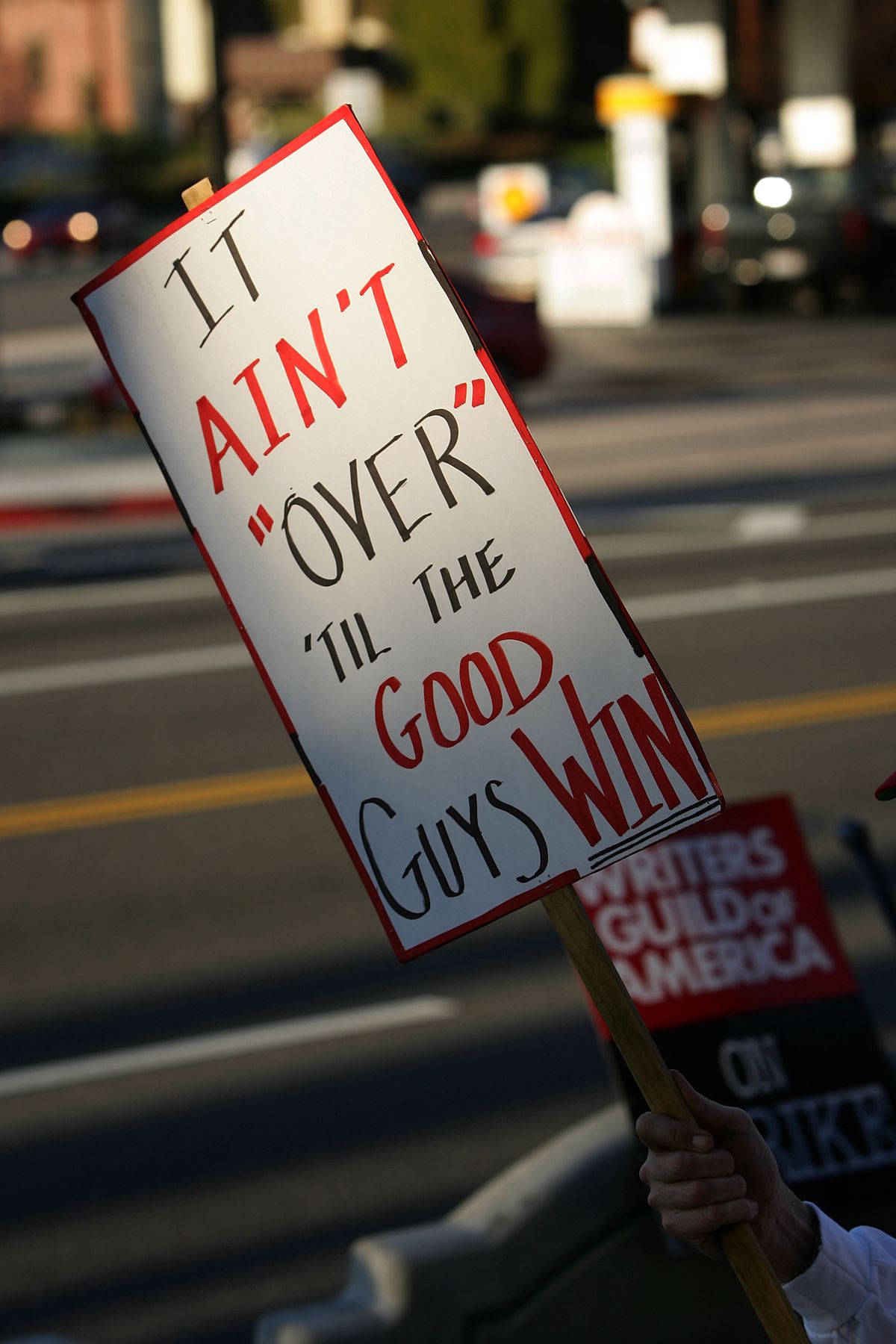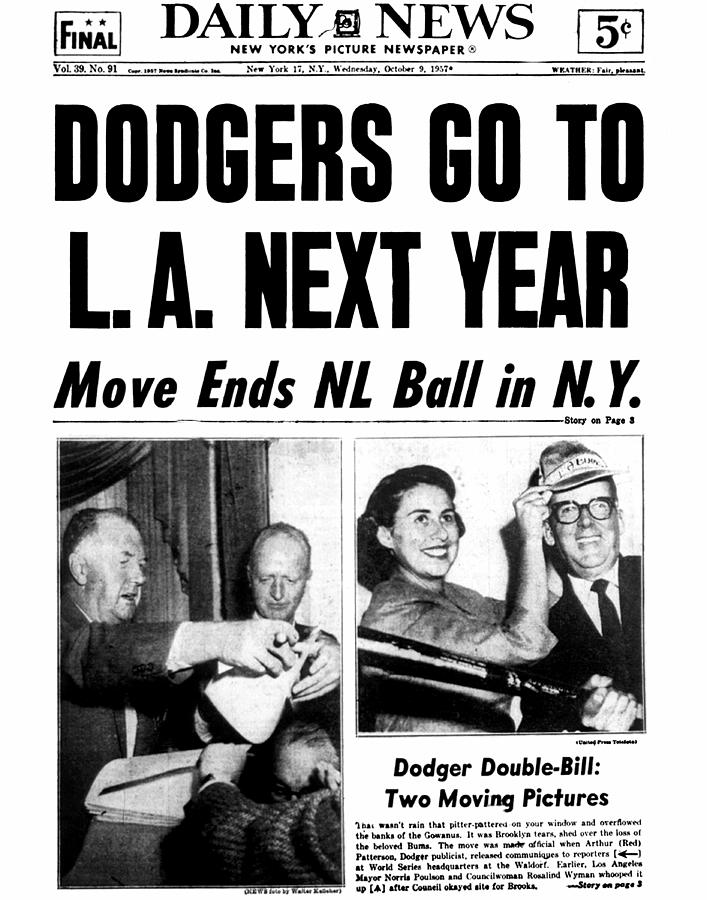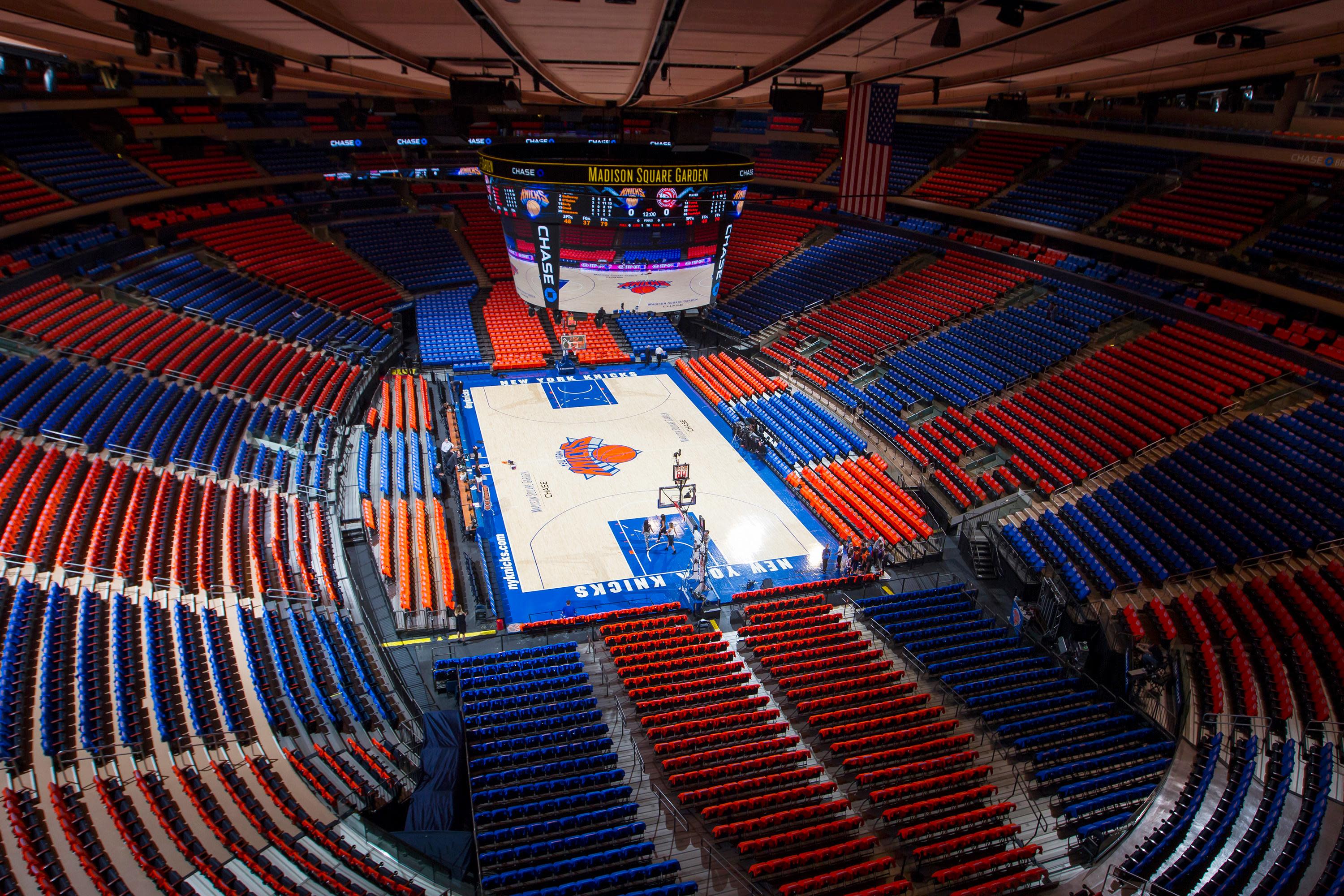Hollywood At A Standstill: Joint Strike By Actors And Writers

Table of Contents
Key Demands of the Writers Guild of America (WGA)
The WGA strike represents a significant turning point in the fight for fair treatment of television and film writers. Their demands reflect the dramatic shift in the industry caused by the rise of streaming services and the increasing threat of artificial intelligence.
Fair Compensation and Residuals in the Streaming Era
The rise of streaming platforms has fundamentally altered the compensation models for writers. Traditional residuals, once a significant source of income for writers, have been drastically reduced or eliminated, leaving many struggling to make ends meet. The WGA is demanding a more equitable system.
- Demand for fairer residuals based on streaming viewership: The current system often fails to accurately reflect a show's success on streaming platforms, resulting in unfair compensation for writers. The WGA is pushing for residuals to be directly tied to viewership numbers, ensuring writers are fairly compensated for their work's popularity.
- Transparency in streaming viewership data: The lack of transparency regarding streaming viewership figures is a major concern. The WGA demands access to this data to ensure fair compensation calculations and prevent exploitation.
- Minimum staffing requirements on productions: To counter the trend of reducing writing staffs to cut costs, the WGA is pushing for minimum staffing requirements on all productions, ensuring writers receive adequate compensation and creative input.
Addressing the Threat of AI
The WGA is deeply concerned about the potential for AI to replace writers, undermining their livelihoods and diminishing the creative process. They are advocating for protections against this technology.
- Negotiating safeguards against AI replacing writers: The WGA seeks to establish clear guidelines on the use of AI in the writing process, preventing its misuse to replace human writers.
- Ensuring proper compensation for work utilizing AI tools: If AI tools are used to assist in writing, the WGA demands that writers receive fair compensation for their contributions.
- Clarification of AI's role in the creative process: The WGA wants a clear definition of AI's role in the creative process, protecting writers' intellectual property and preventing the exploitation of their work through AI technologies.
Key Demands of the Screen Actors Guild - American Federation of Television and Radio Artists (SAG-AFTRA)
SAG-AFTRA’s participation in the Hollywood strike underscores the widespread dissatisfaction among actors regarding fair wages, working conditions, and the ethical use of their likeness in the age of streaming and AI.
Fair Wages and Working Conditions
Actors, particularly those working on low-budget productions and streaming projects, often face inadequate wages and exploitative working conditions. SAG-AFTRA's demands address these issues directly.
- Increased minimum wages: The union is pushing for substantial increases in minimum wages across all productions to ensure a living wage for all actors.
- Improved health and safety standards on set: SAG-AFTRA demands better health and safety protocols on set to protect actors from potential harm and ensure a safe working environment.
- Protection against exploitation: The union aims to establish stronger protections against exploitation, including measures to prevent long working hours and unfair treatment.
Self-Tape Auditions and Usage of AI
The increasing reliance on self-tape auditions and the potential misuse of actors' likenesses through AI are key concerns for SAG-AFTRA.
- Limits on self-tape auditions: The union seeks to limit the overuse of self-tape auditions, recognizing the burden and inequity this process places on actors.
- Regulations on the use of AI to generate actors' images or voices: SAG-AFTRA demands strict regulations on the use of AI to generate actors' images or voices without their consent or proper compensation.
- Fair compensation for AI-generated content using actors' likenesses: The union insists on fair compensation for any use of an actor's likeness in AI-generated content.
Streaming Royalties and Residuals
Similar to the WGA, SAG-AFTRA is demanding a fairer share of streaming revenue through improved residual payments.
- Restructuring of residual payments to reflect streaming viewership: The union wants residuals to accurately reflect the success of a project on streaming platforms, ensuring actors are compensated fairly for their work's popularity.
- Increased transparency in streaming revenue data: SAG-AFTRA demands transparency regarding streaming revenue data to ensure fair compensation calculations.
- Fair compensation for streaming platforms' use of actors' performances: The union is fighting for fair compensation for streaming platforms' continued use of actors' performances, ensuring they receive a fair share of the profits generated.
The Impact of the Joint Strike
The joint strike by the WGA and SAG-AFTRA is having a significant and multifaceted impact on the entertainment industry.
Economic Fallout
The strike’s economic consequences are far-reaching and affect numerous sectors.
- Job losses for crew members and support staff: The halt in production directly leads to job losses for numerous crew members and support staff who rely on film and television productions for their livelihoods.
- Delays in film and television production: The strike has resulted in significant delays in film and television production, impacting release schedules and potentially affecting future projects.
- Potential loss of revenue for studios and streaming platforms: The prolonged strike poses a substantial threat to the revenue streams of studios and streaming platforms, impacting their bottom line.
Potential for Long-Term Change
This joint Hollywood strike might be a catalyst for significant and lasting changes within the industry.
- Possibility of renegotiated contracts offering better compensation and working conditions: The strike could lead to improved contracts, providing better compensation and working conditions for writers and actors.
- Increased focus on addressing the impact of AI on the creative industries: The strike highlights the crucial need for proactive measures to address the ethical and economic implications of AI in the creative industries.
- A potential paradigm shift in how content is created and distributed: The strike's outcome could initiate a transformation in how content is created and distributed, potentially leading to more equitable systems and practices.
Conclusion
The Hollywood strike, a joint effort by the WGA and SAG-AFTRA, represents a pivotal moment in the entertainment industry. The demands for fair wages, residuals, and protection against AI demonstrate the urgent need for significant change in how creatives are compensated and protected in the evolving media landscape. The outcome of this Hollywood strike will have far-reaching consequences for the future of filmmaking and television. Staying informed about the actors strike, the writers strike, and the overall entertainment industry strike is crucial for anyone interested in the future of entertainment. Let’s continue to support the striking writers and actors in their fight for fair treatment and a sustainable future in the entertainment industry.

Featured Posts
-
 Understanding The Dynamics Of Japans Steep Bond Curve
May 17, 2025
Understanding The Dynamics Of Japans Steep Bond Curve
May 17, 2025 -
 Novak Djokovic Miami Acik Finalinde
May 17, 2025
Novak Djokovic Miami Acik Finalinde
May 17, 2025 -
 New York Daily News Back Pages May 2025 Archives
May 17, 2025
New York Daily News Back Pages May 2025 Archives
May 17, 2025 -
 Uber One Launches In Kenya Enjoy Savings On Rides And Eats
May 17, 2025
Uber One Launches In Kenya Enjoy Savings On Rides And Eats
May 17, 2025 -
 New York Knicks Robinson Back Season Debut Following Ankle Injury
May 17, 2025
New York Knicks Robinson Back Season Debut Following Ankle Injury
May 17, 2025
Latest Posts
-
 Novak Dokovic Mensik Otkriva Njegovu Ulogu U Njegovom Uspehu
May 17, 2025
Novak Dokovic Mensik Otkriva Njegovu Ulogu U Njegovom Uspehu
May 17, 2025 -
 Novak Djokovic Rakipsiz Performans Ve Kortlardaki Hakimiyeti
May 17, 2025
Novak Djokovic Rakipsiz Performans Ve Kortlardaki Hakimiyeti
May 17, 2025 -
 Novak Djokovic Kortlarda Zirvenin Yenilmez Krali
May 17, 2025
Novak Djokovic Kortlarda Zirvenin Yenilmez Krali
May 17, 2025 -
 Tenis Efsanesi Djokovic 37 Yasinda Hala Zirvede
May 17, 2025
Tenis Efsanesi Djokovic 37 Yasinda Hala Zirvede
May 17, 2025 -
 Djokovic In 37 Yasindaki Formu Analiz Ve Gelecek
May 17, 2025
Djokovic In 37 Yasindaki Formu Analiz Ve Gelecek
May 17, 2025
